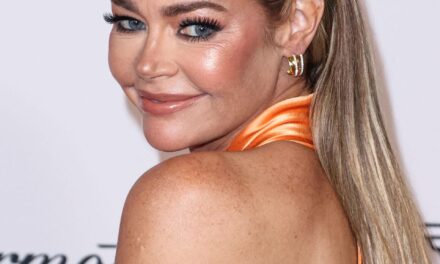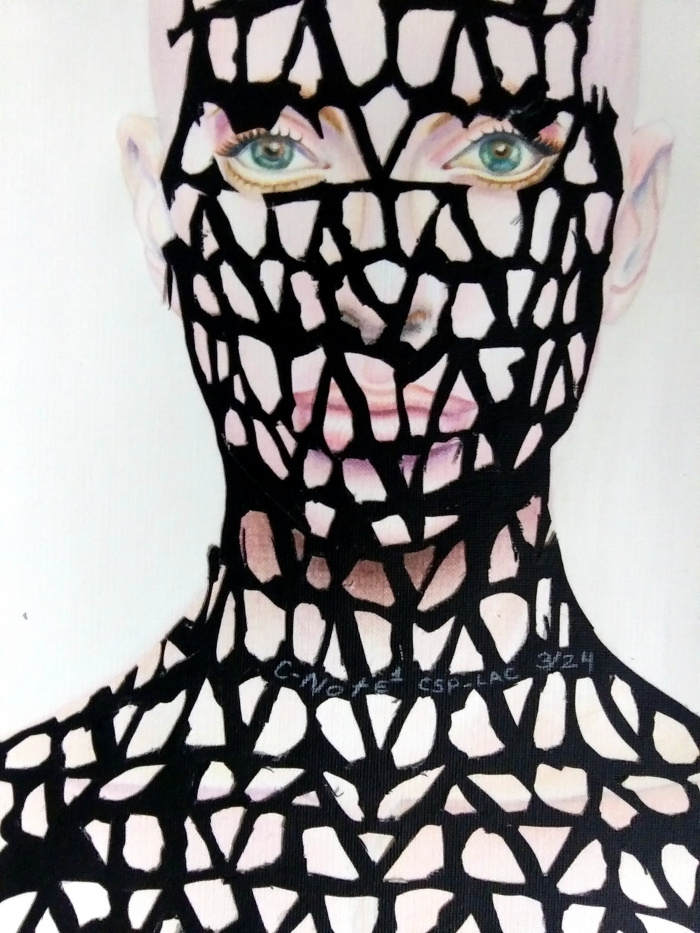During a judge-alone trial last September, Hooper pleaded guilty to one count of defying a court order in July 2021 by posting about a fellow influencer on social media and on her blog. She pleaded not guilty to four other charges involving online posts about the woman and three men: a media personality, an artist whom the court had ordered her not to post about and an accused sex offender with name suppression whom she outed on social media.
Judge Skellern later acquitted her of the charge against the media personality and of wilfully breaching suppression for the alleged sex offender, but found her guilty of twice violating the Harmful Digital Communications Act for the posts regarding the OnlyFans victim and the artist.
Hooper admitted during her trial to having posted two clips of the intimate video with a man on OnlyFans in 2021, but she insisted it wasn’t with the intention of harming him via serious emotional distress – a requirement for it to be considered a crime. She posted it behind a $100 paywall so as to discourage fans from actually seeing it and she didn’t think anyone who did watch the video would be able to identify him because of how closely it was cropped, she testified. The whole scheme, she said, was intended to out him as still anonymously following her on the explicit account despite her asking him not to.
He testified that he messaged her multiple times asking her to remove the footage, but she responded by telling him to get off her OnlyFans page, threatening also to release more videos and to contact his workplace. The videos were taken down about two weeks after the first request, but only because OnlyFans closed her account as a result of a police complaint.
When asked in the witness box if she knew the posts would “hurt” the man, she responded: “You don’t get to be a perpetual victim and ruin other people’s lives cos you’re just fragile … you are an adult … I felt I had to do that, and you know I proved my point.”
At sentencing in the Auckland District Court today, Judge Skellern accepted the argument from Hooper’s defence lawyer, Harrison Smith, that a sentence of community work would cause more harm than good, given the likelihood of exposing her to an environment, and individuals, that may be harmful to her.
Skellern inquired whether Hooper would be able to give an emotional harm reparation, but was informed the social media personality stands to lose her employment after her convictions and was not able to.
Smith had argued that Hooper was on a “crusade” to make social media influencers more “responsible”, and her actions did not have an intention to “promote her own self-interest”.
“As a social advocate, she comments on issues of racism and sexual and physical violence … admittedly Ms Hooper is confrontational and perhaps brash in her approach … understandably having begun her career as a gossip columnist,” Smith said today.
“Behind the hard exterior is an individual who has suffered significantly … as a result of the persecution on social media which ultimately led to her having to resign her journalist role.”
Smith argued that if individuals were going to promote their business interests by opening up their personal lives on social media, they have to accept that it is open to criticism.
Judge Skellern said she would not go into detail on the decision to refuse Hooper a discharge without conviction given she was appearing via video link, and the technology was less than optimal.
In a written judgment released in November, Judge Skellern agreed with the prosecution that Hooper had intended to harm the victim, even if she did take steps to mask his identity in the posts.
“Whether or not how many others would have recognised [him] is only one matter for consideration,” the judge noted. “Her intention was to ensure he recognised himself and cause him distress with the end purpose of forcing him to take the steps she desired.”
The judge also rejected the defence’s argument that an “ordinary reasonable person” wouldn’t have suffered serious emotional distress when considering the assertion that the explicit content was so tightly cut that he wasn’t at risk of being identified.

“I consider that the posting of this material, without the consent of the other party, refusing to remove it and in the context of making threats to contact the victim’s employer, would have the effect of making the ordinary reasonable person feel absolutely powerless that their image was being used in this way and cause them serious emotional distress,” the judge said.
Hooper was also found guilty of violating a 2019 court order via Twitter by writing the words “abuser of women” over a screenshot of an artist’s piece. The artist had already accused her of violating the Harmful Digital Communications Act against him, and as a result she was ordered not to publish his name or anything that could lead to his identification via his artwork.
Hooper testified that she had not intended to identify the artist through her comment, and if she had harboured such an intention she would have “just said names”. Her lawyer argued that the post didn’t identify the man because a viewer would need to know the artwork was his. The judge disagreed, stating the post “clearly” breached the order.
However, the judge found there was insufficient evidence to find her guilty of knowingly violating suppression by outing the alleged sex offender. The man, a former acquaintance, was found guilty in 2014 and didn’t have name suppression at the time. But his conviction was later overturned by the Court of Appeal and he was given permanent suppression after he was discharged at his retrial. Hooper said she wasn’t aware he had been granted suppression.
Prosecutors pointed to her former employment at the Herald as evidence she should have known better than to post about a court case without checking for suppression orders. Her lawyer successfully argued that she could not reasonably have known about the suppression and that her former job in journalism did not require familiarity with court orders.
“Ms Hooper’s role at the New Zealand Herald, for want of a better description, was as a gossip columnist,” the judge noted. “I do not accept that she would have been versed in terms of the Criminal Procedure Act and therefore reasonably be expected to make inquiries of the District Court as to the current situation.”
The prosecution was also unsuccessful in convincing the judge that Hooper violated the Harmful Digital Communications Act via a series of social media posts in 2020 designed to confront a media personality. It was argued by the prosecution that she embarked on a concerted campaign to damage his reputation and cause him serious emotional distress by painting him in a bad light.
“The posts are limited in number, and, in the main, seek to challenge [the media personality’s] personal view of feminism,” Judge Skellern noted. “It is open to Ms Hooper to put forward her own perspective … [the media personality] is, as characterised by defence counsel, an adult professional man who is a prolific social media user and uses it as a commercial platform. This is a matter where Ms Hooper was engaging in free speech to challenge the [media personality’s] position.”
The defendant, whose full name is Pebbles Maria Alice L’Estrange-Corbet-Hooper, is the daughter of Dame Denise L’Estrange-Corbet and Francis Hooper. Her parents founded the New Zealand-based fashion label WORLD together in 1989, just before their only daughter was born.
Hooper resigned from the Herald, where she was co-editor of Spy, in 2015 after an uproar over a tweet in which she suggested the deaths of an Ashburton mum and her three children amounted to “natural selection”. Their deaths appeared to have been caused by a car that had been left running in their garage to keep the battery operational. She later apologised for what she said were “careless” remarks.
Hooper had initially been set for sentencing in May. She appeared for that hearing via audio-video feed from the United States after the court was informed one day earlier that she was overseas and had no intention of returning in time. Her virtual appearance was reluctantly approved by the judge, but Judge Skellern lost her patience after it was revealed Hooper’s overseas travel meant that a critical psychological report hadn’t yet been prepared.
“I’m wondering how seriously this is all being taken,” the judge wondered aloud. “The court should have been told [earlier] she is not in the country – absolutely should have been told … This is really unsatisfactory given there are three victims who are waiting for this matter to be finally resolved.”
Craig Kapitan is an Auckland-based journalist covering courts and justice. He joined the Herald in 2021 and has reported on courts since 2002 in three newsrooms in the US and New Zealand.
Tom Dillane is an Auckland-based journalist covering local government and crime as well as sports investigations. He joined the Herald in 2018 and is deputy head of news.
This post was originally published on this site be sure to check out more of their content.





